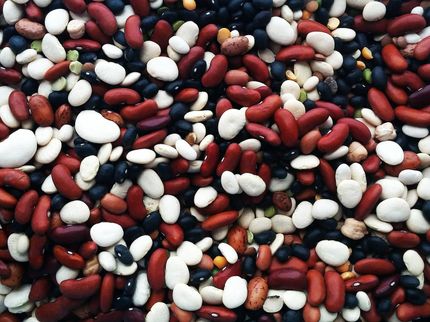New dietary recommendations emphasize the importance of pulses
Advertisement
The Austrian Federal Ministry of Social Affairs, health, Care and Consumer Protection recently revised its nutritional recommendations. The German Nutrition Society (DGE) already took this step in March of this year. In both countries, new categories were introduced in the recommendations in order to promote the consumption of pulses - such as peas, soybeans, sweet lupins and field beans - and to place greater emphasis on them. The Union zur Förderung von Oel- und Proteinpflanzen e. V. (UFOP) welcomes the new Austrian and German nutritional recommendations and sees them as an important step towards a balanced and environmentally conscious diet and a strengthening of European agriculture.

In Europe, regional production and marketing of pulses such as grain peas enables short transportation routes
UFOP e.V. | Andrea Thode
Pulses are valuable sources of vegetable protein and an important pillar of a balanced and sustainable diet. The DGE emphasizes that pulses are not only rich in protein, but also in vitamins, minerals, fibre and phytochemicals. It recommends at least one portion of 125 g of cooked pulses per week, which corresponds to approx. 70 g dry weight. These guide values apply to healthy adults (aged between 18 and 65) with an energy requirement of approx. 2,000 kcal per day who eat both plant and animal foods (mixed diet). The recommendations in Austria are higher: three portions of pulses and products made from pulses per week (37 g/day) are recommended for people on a mixed diet. People on a vegetarian diet should consume four portions per week (54 g/day).
When deriving the dietary recommendations, environmental impacts were also taken into account for the first time in both countries. In this context, UFOP points out the high added value of European pulses. Regional production and marketing of grain peas, field beans, sweet lupins or soybeans enables short transportation routes.
This environmental approach is reflected even more strongly in the EAT-Lancet Commission's Planetary Health Diet, which aims to reconcile the health and environmental effects of nutrition. This nutritional concept places greater emphasis on plant-based foods in the daily diet. Pulses play a central role in this. A total of 75 g per day should be consumed. That would be the equivalent of around 27 kg per person per year.
In fact, the average per capita consumption of pulses in Germany is one to two kg* per year, in Austria around 1.2 kg** per year. Both figures are low by international standards and underline the potential for increasing consumption among the population. The new recommendations from Germany and Austria therefore focus on clearly promoting the consumption of pulses in order to positively influence both individual well-being and the ecological footprint.
* https://www.bmel-statistik.de/ernaehrung/versorgungsbilanzen/huelsenfruechte
** https://de.statista.com/statistik/daten/studie/426325/umfrage/pro-kopf-konsum-von-huelsenfruechten-in-oesterreich/
Note: This article has been translated using a computer system without human intervention. LUMITOS offers these automatic translations to present a wider range of current news. Since this article has been translated with automatic translation, it is possible that it contains errors in vocabulary, syntax or grammar. The original article in German can be found here.





























































